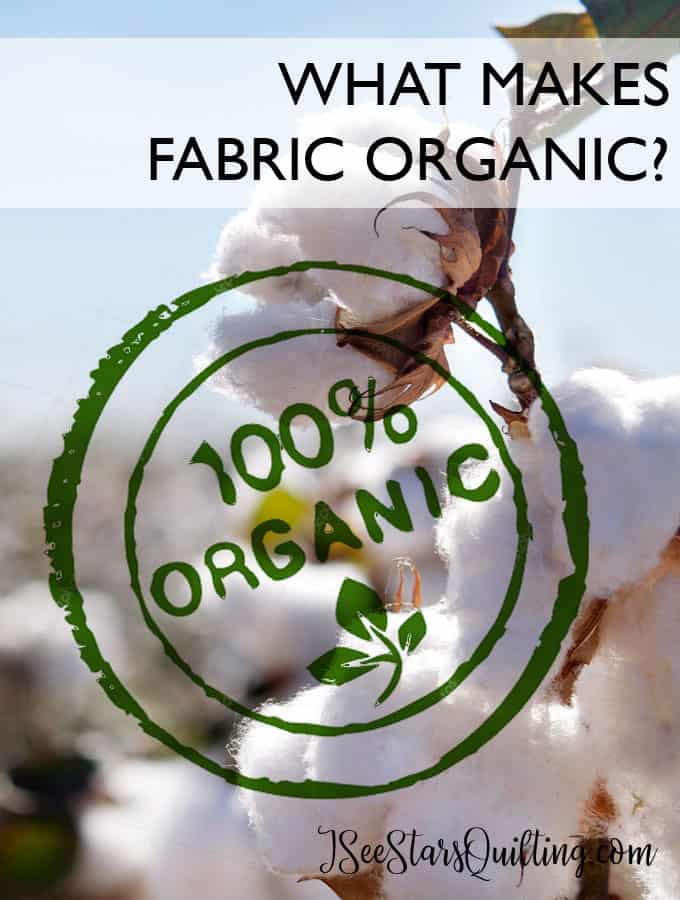
Organic Fabric?… really?
What makes fabric organic?
I get “organic” at the grocery store. If you can afford it, you opt for organic produce… if you can’t well… you either don’t sweat it or you say an extra prayer and know life understands you’re doing the best you can. – At least that’s the way the shift in the way many of us eat now is moving.
We tend to be a generation that also cares about the impact of what we consume has on the planet as well as what it is made of.
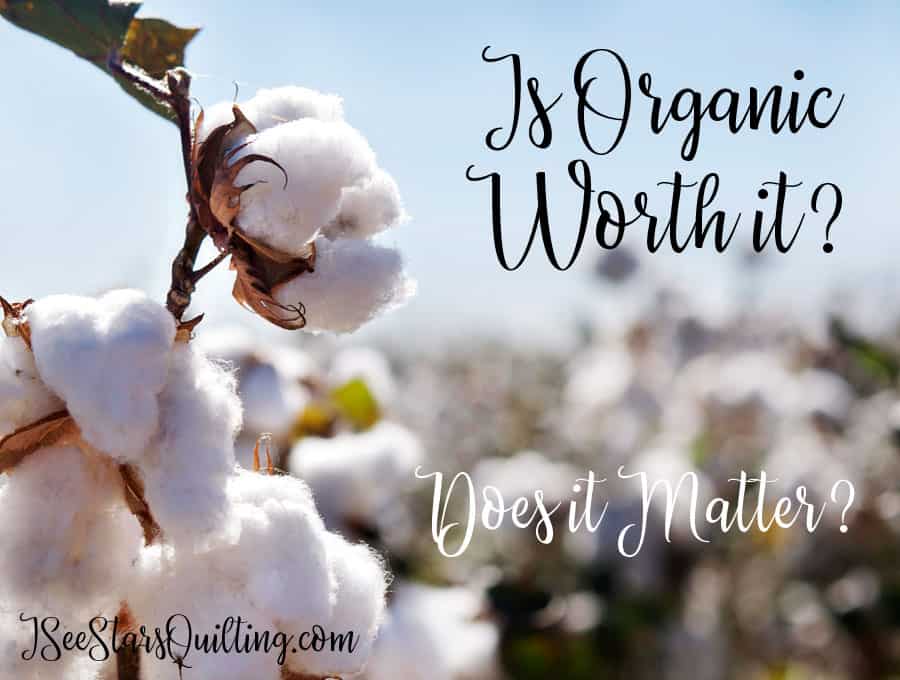
But in the fabric store? I’m pretty sure you’re not going there looking for a snack or to save the earth. We shop for fabric because we want to make pretty things! So whats the point of fabric being organic?
For the longest time, I honestly thought that “organic fabric” meant that it had a higher price tag (a little snooty-er social status as well) and maybe didn’t get the synthetic chemical bath that regular lower class fabrics to get squeaky clean. Fewer chemicals = better for the environment, right?. Maybe someone sings original opera to the cotton plants to make it grow more? Sounds pretty organic to me.
Ok so maybe I didn’t have all the facts… keep reading… I did lots of very studious research on this just for you. (and it gives me something that I ‘have to work on’ while my husband watches more sports games on TV… More sports…)
For the sake of making this post not last for days and days, we’re going to focus on specifically organic cotton. There are other fabrics out there proudly boasting that organic label such as line, ramie, hemp, and bamboo… just to name a few.
What is Organic Cotton Fabric?
Cotton fabric is the end result. The fabric starts with the cotton plant and goes through a host of processes before the fibers can be woven into the gorgeous fabric that we see in the stores.
Organic cotton is grown using farming methods and processes that have a low impact on the environment. (Told you it must be better for the environment!) Organic cotton is farmed in a setting with no pesticides, herbicides, or other chemicals. Only natural fertilizers are used.
Everything from start to finish is focused on doing as little damage to the earth as possible. Organic fibers are bleached using oxygen-based bleach instead of chlorine and dyed with low-impact dyes.
Third-party certification organizations verify that organic producers use only methods and materials allowed in organic production.
In addition, federal regulations prohibit the use of genetically engineered seed for organic farming. A fabric can be called organic as long as 95% of the fabric contains the organic fabric.
Does Organic Cotton Feel Any Different than Un-organic?
I can personally attest to this. So unless you go to the fabric store and feel for yourself, you’ll just have to take my word for it…
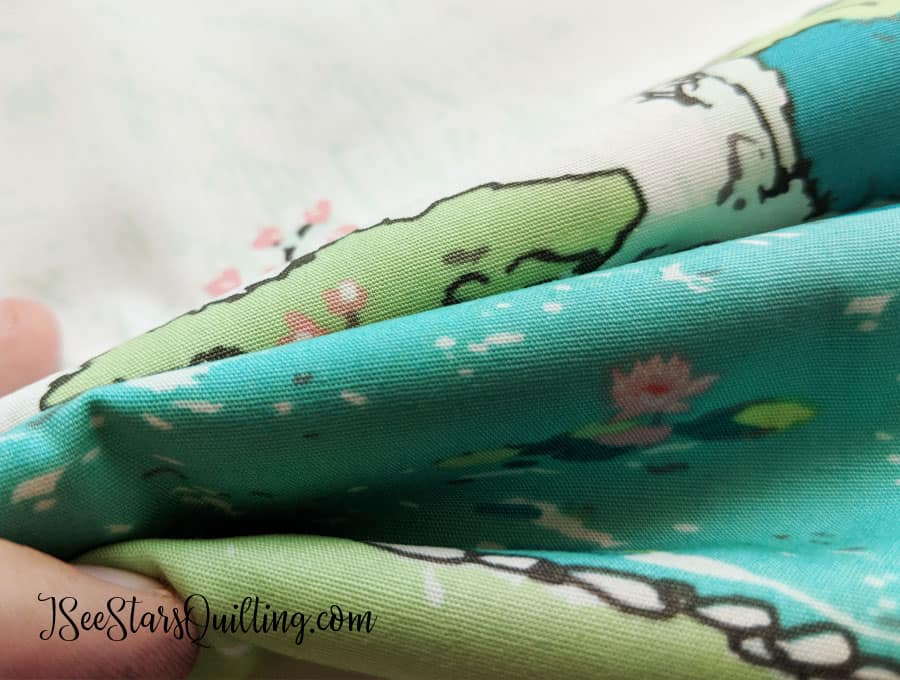
YES! There is such a difference in the feel. Organic cotton feels softer and smells cleaner. It is less likely to trigger allergies with a 100% chance of you wanting to keep touching it.
You know when you touch a fabric and it just folds in your hand like smooth butter? I know I kind of dote on them a lot, but I love Art Gallery Fabrics. They are more expensive but well worth it for the superior quality and touch of their fabrics. Next time you go to the quilt store, ask to see it so you can touch it. (FYI, you won’t find them at the big chain stores that are looking to price fabrics as cheap as possible. I have some links down at the bottom if you keep reading.)
Why Does Organic Cotton Cost More?
Truth is, things that don’t use cheap chemicals cost more. Just like the products in the grocery store. The farmers who choose to go organic aren’t doing it to cut costs. It actually adds more time and more money on their part to produce a better product for you.
The low impact dyes are more expensive than their chemical laden counterparts.
Fighting pests and weeds without chemicals take more time.
The farmers that are committed to this highly regulated and super picky way of life doing the world a big favor.
In case you’re wondering… it isn’t THAT much more expensive. If you’re super spreadsheet budgeting before you start a project, know it will run you a few dollars more depending on the brand and the fabric as well as if it was limited print. Most organic cotton fabrics run around $11-$18/yard, with a huge selection on the lower end of the range.
If you order online sometimes, you can find a good coupon code to offset a little of the costs.
Check out other ways I find good deals on fabric.
How is it better for the environment?
I touched on this a bit above, but let’s go a little deeper… shall we? There are no pesticides, herbicides, or other chemicals allowed from the beginning of the process to the end of the process. Only natural fertilizers are used. The harvesting and cleaning process uses all natural ingredients.
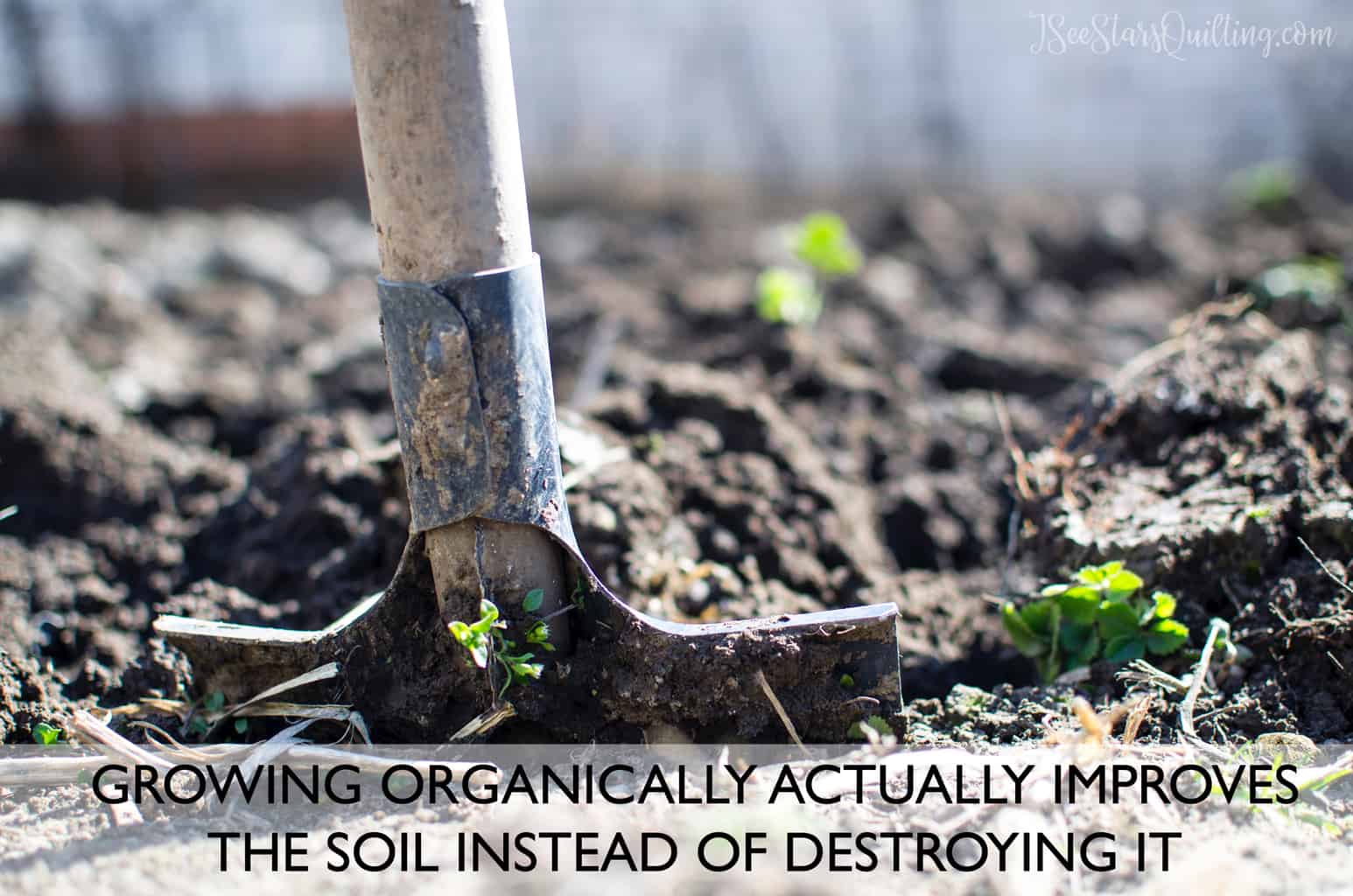
Going one step further… The sustainable farming practices used to grow organic cotton do not pollute groundwater, surface water, soil, or air. In fact, the organic farming practices actually improve soil quality.
Are there other benefits?
I know I talked about how soft it is and how the farming process is kinder to the earth… but what else can it do? I did talk it up to be a super-powered fabric – It’s only natural that you expect more.
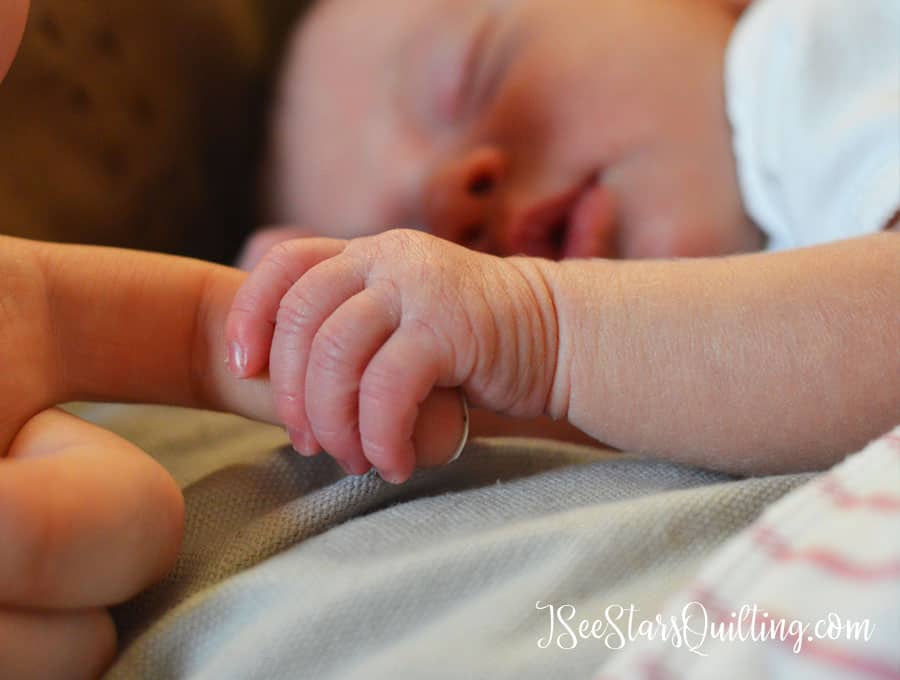
A lot of people, children and babies especially tend to be very sensitive to synthetic fabrics, traditional clothes soaps, and fabric softeners… My first child was like this. Anything I dressed her in irritated her poor little skin! It was a nightmare to find clothes when she was a baby.
Since organic cotton cuts out literally every irritating nasty chemical, the result is going to be easy for the skin.
Where Can I Find Organic Cotton?
Just like it took a while to get the organic food industry more mainstream, the organic fabric market is slowly becoming more and more popular as the word gets out.
You can find all the brands below on Fabric.com I shop here all the time because it’s super convenient to have my items shipped to me and not have to drag my kids to the store with me. You can read my full review of fabric.com here. I’m also putting a few handy links to some Amazon listings *hello free prime shipping!*
I already mentioned my BFF fabric Art Gallery. They’re modern prints, and commitment to organic fabrics is why they will quickly become your BFF too… just remember they were my BFF first.
Cloud 9 has luscious marry-me-now soft solid fabrics. They feel absolutely heavenly to the touch!
Birch Fabrics is another one of my favorites… go check them out and tell me don’t just fall in love with everything they have!
So there you have it. Organic Fabric – absolutely for touching and saving the planet at the same time… totally NOT for eating, even though it is processed very safely.
What is your take on Organic Cotton?
Do you have a preference?
If you have any questions or feel like I didn’t answer your more in-depth questions, comment down below and I’ll do my best to figure it out for you.

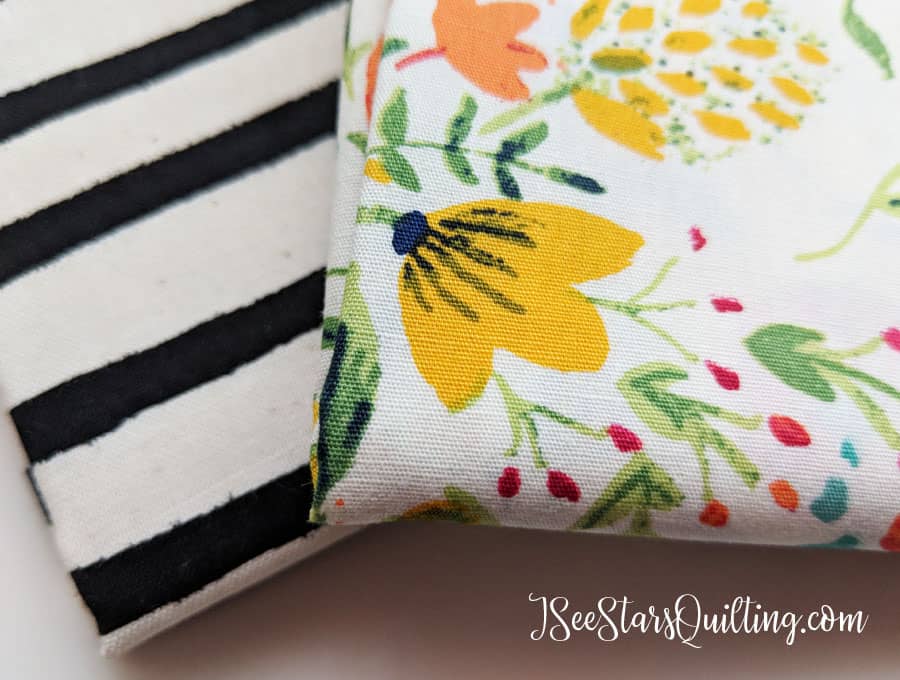
Very interesting – who knew!? Thanks for the info. I always learn something new from you!
Thank you! I’m happy to be informative 🙂 Have a good day!